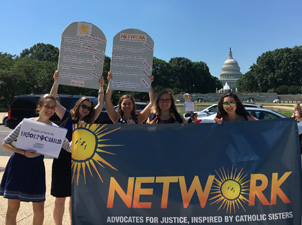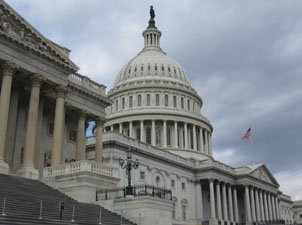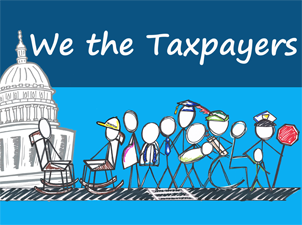
Let’s Change Course Starting This Tax Day
Simone Campbell, SSS
April 17, 2018
I’m usually proud to pay my taxes, but this year is different.
Ordinarily I am glad to contribute to the common good. I’m glad that some of my taxes go to fund food programs and housing programs for so many in our nation who have been excluded from economic prosperity. I delight in paying my taxes to fund the education of the next generation. I am glad to pay my taxes to support critical healthcare for so many in our nation. I still criticize the amount of money going to the military for violence in our world, but I do my part even in that.
I am glad to contribute my part to “forming a more perfect Union.” It is part of my Catholic faith to contribute to the common good. In the past, I have delighted in faithfully, patriotically doing my part.
But this year is different. I am haunted by the fact that this year is the last time that our current tax code will be in effect. The Republican-controlled House, Senate, and White House enacted a new tax code in December 2017. This new code increases our national deficit by $3 trillion dollars by shifting yet more money to corporations and those at the very top of the income scale.
This same dramatic decline in federal revenue is also the excuse that some Republicans, like Speaker Paul Ryan, are already using to explain why the government must cut funding for food to feed hungry children or senior citizens. It is the same excuse that politicians are using to claim our nation cannot afford to provide access to quality, affordable, equitable, accessible health care. It is the same excuse that they are using to say that it is all right if our families don’t have a place to live, because we refuse to invest in affordable housing. Our Republican elected officials are saying it is all right if the income and wealth gap in our nation continues to grow and our low-wage working families continue to suffer.
In short, the Republicans in Congress are proud that they are creating even bigger economic divides in our nation through their skewed tax policy.
But I know that their preference-the-rich policy does not faithfully support our people or our national needs. It fails the Pope Francis test when he says, “The dignity of each human person and the pursuit of the common good are concerns which ought to shape all economic policies” (Joy of the Gospel, 203). It fails the Jesus test when he instructs us to love our neighbors. It fails the test of the Hebrew Scriptures that call on us to care for the orphan and the widow.
This tax policy fails any faith test. We as a nation will be judged because of it.
But that is not all. In our diverse society, not all of us are people of faith. But what we do share in common is our founding document of the Constitution. The key is found in the preamble where we assert “We the People of the United States, in Order to form a more perfect Union…insure domestic Tranquility…promote the general Welfare.”
This profoundly flawed Republican tax law is undermining our Union. It promotes the welfare of the few over the many. It sows the seeds of social discord by preferencing those who already have so much.
This tax law makes me weep for who we have become as a nation. We are failing our people. President Franklin Roosevelt said, “The test of our progress is not whether we add more to the abundance of those who have much; it is whether we provide enough for those who have too little.”
This Tax Day, let us resolve to change course. Let us set our sights on the common good, not individual wealth. Let us as a nation raise reasonable revenue for responsible programs. This is what will make America great again.
Originally published at https://www.redletterchristians.org


















 Catholic Social Justice also requires us to make a preferential option for those experiencing poverty. Prioritizing those with the greatest need must be done so that all are able to meet their basic needs and live in community. We can begin to mend the income and wealth gap by requiring everyone to pay their fair share of taxes. President Trump’s framework, if enacted, will expand the gap between those of living with ample means and those struggling to provide for their families.
Catholic Social Justice also requires us to make a preferential option for those experiencing poverty. Prioritizing those with the greatest need must be done so that all are able to meet their basic needs and live in community. We can begin to mend the income and wealth gap by requiring everyone to pay their fair share of taxes. President Trump’s framework, if enacted, will expand the gap between those of living with ample means and those struggling to provide for their families.
